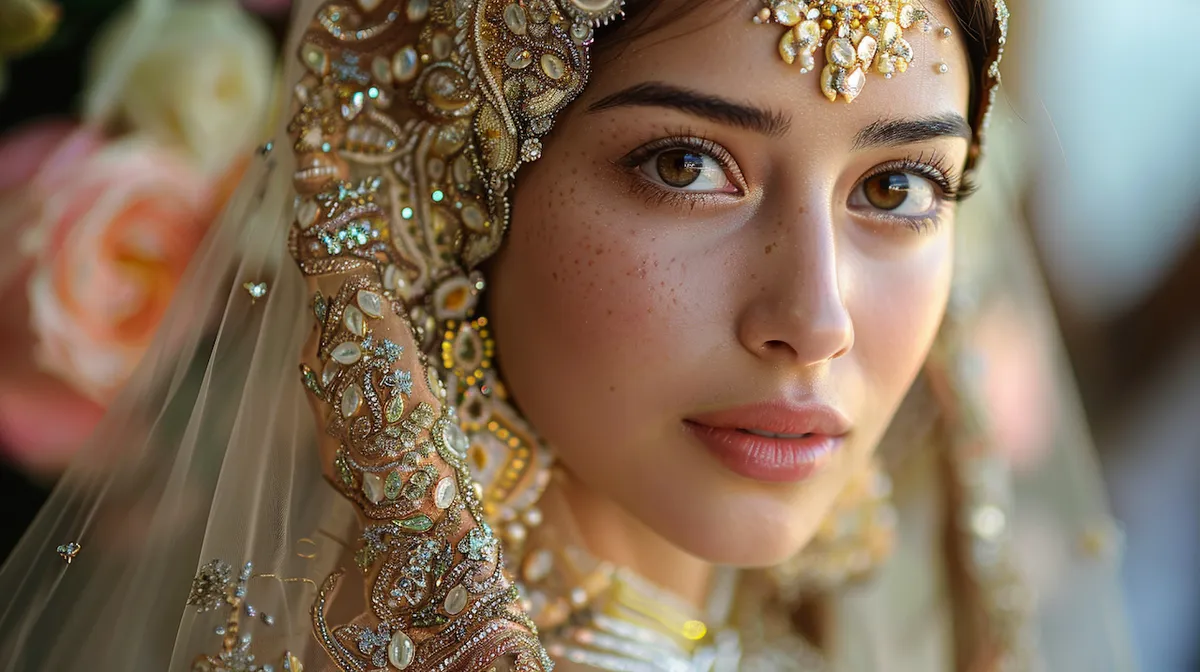
Marriage is considered a sacred bond in every society, a union that brings two individuals together in love and commitment. However, the customs and traditions surrounding marriage can vary significantly from one country to another. In this comprehensive guide, we will delve into the intriguing world of marriage in Saudi Arabia, shedding light on the unique aspects that characterize this age-old institution. From the traditional customs to the modern influences shaping the concept of marriage, we will explore every aspect, making this article an essential read for anyone seeking to understand the complexities of saudi arabia marriage. Whether you are planning to tie the knot in Saudi Arabia or simply curious about its rich cultural heritage, this guide will serve as a valuable resource in unveiling the mystique behind saudi arabia marriage. So, let's embark on this enlightening journey and unravel the secrets of marriage in the land of kings.
Traditional Marriage Customs in Saudi Arabia
Marriage holds a significant place in Saudi Arabian culture, reflecting the traditions and values cherished by its people. Traditional marriage customs in Saudi Arabia are deeply rooted in Islamic traditions and are considered sacred. These customs encompass various rituals and practices, from the selection of a suitable partner to the wedding ceremony itself.
In Saudi Arabia, marriages are often arranged by the families, with parents playing a crucial role in the matchmaking process. The criteria for selecting a spouse typically include factors such as social status, family background, and compatibility. It is common for families to seek alliances within their own tribes or social groups to maintain societal harmony and preserve their cultural heritage.
Once a suitable match is found, a formal engagement takes place, known as the katb al-kitab. This is a significant step, where the couple meets to finalize the agreement in the presence of witnesses. The groom usually pays a dowry to the bride, signifying his commitment and responsibility towards her. The dowry can range from money and jewelry to property or other valuable assets.
The wedding ceremony itself is an elaborate and joyous affair in Saudi Arabia. It is a celebration of love and union, witnessed by family, friends, and the entire community. Traditional customs, such as henna painting on the bride's hands, exchange of vows, and elaborate feasts, are an integral part of the celebrations. These customs not only bring joy and happiness to the couple but also serve as a means of strengthening social bonds and fostering a sense of community.
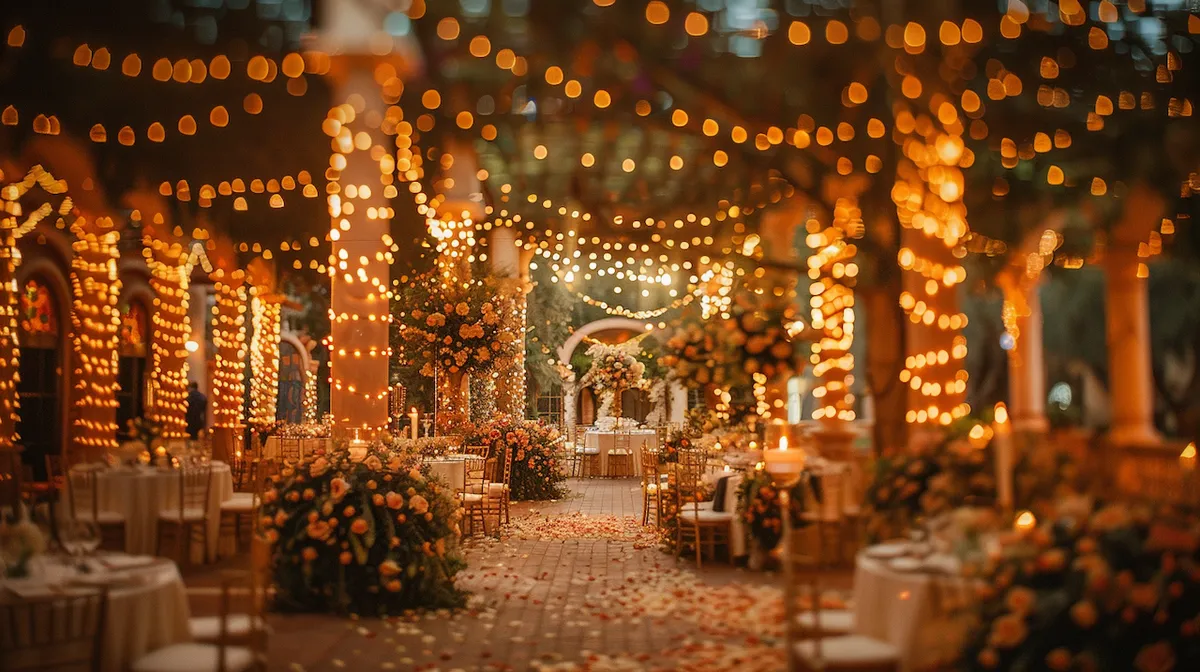
In conclusion, traditional marriage customs in Saudi Arabia exemplify the deep-rooted cultural and religious values held by its people. From arranged marriages to elaborate wedding ceremonies, these customs reflect the importance of family, societal harmony, and adherence to Islamic traditions. While modern influences and changing attitudes have brought some modifications to these customs, they continue to be cherished and respected as an essential part of Saudi Arabian society.
Legal Requirements for Getting Married in Saudi Arabia
In Saudi Arabia, marriage is a significant event that is treasured and celebrated by both families involved. Traditional marriage customs in Saudi Arabia have deep-rooted cultural and religious influences, making the ceremony and rituals unique to the region. Saudi Arabian marriages are often arranged by the families, with great consideration given to factors such as social status, compatibility, and family reputation.
One of the key aspects of a traditional Saudi Arabian marriage is the negotiation process. Families of the bride and groom come together to discuss the terms and conditions of the union, including the wedding expenses, dowry, and other arrangements. Following the negotiations, an engagement ceremony known as the "Katb Al-Kitaab" takes place, where the couple officially agrees to marry. It is during this ceremony that the Mahr, or dowry, is agreed upon and presented.
The actual wedding ceremony in Saudi Arabia is a joyous occasion filled with elaborate decorations, music, and lavish feasts. The bride and groom are separately prepared for the celebration, with the bride often wearing an intricately designed traditional dress known as a "thobe." Women gather for a traditional henna party where the bride's hands are adorned with intricate henna designs. A procession then follows, where the bride is escorted to the groom's residence or a religious venue for the wedding ceremony to take place.
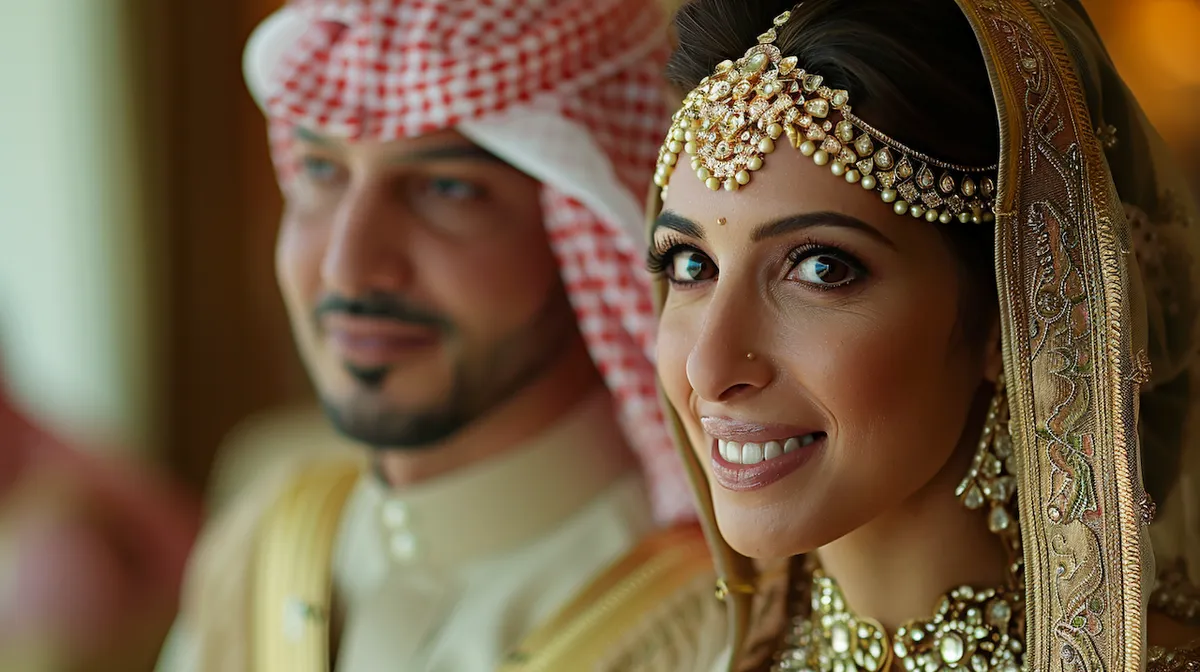
In conclusion, traditional marriage customs in Saudi Arabia reflect the rich cultural heritage and deep-rooted traditions of the country. While arranged marriages still prevail, modern influences have started to blend with customary practices. Despite changes in society, the significance of marriage remains paramount in Saudi Arabia, and the traditional customs surrounding this sacred union continue to be cherished and celebrated.
Preparing for a Marriage Ceremony in Saudi Arabia
Planning a marriage ceremony in Saudi Arabia requires careful attention to detail and adherence to cultural traditions. From selecting the perfect venue to arranging for traditional customs, there are several important factors to consider. In Saudi Arabia, marriage ceremonies are not just about celebrating the union between two individuals, but they also hold significant cultural and religious importance.
One of the first steps in preparing for a marriage ceremony in Saudi Arabia is to choose an appropriate venue. Many couples opt for luxurious hotel ballrooms or grand banquet halls to host their celebration. These venues often offer all-inclusive packages that include catering services, decoration, and seating arrangements, which can alleviate some of the stress associated with planning.
Next, it is crucial to adhere to the cultural customs surrounding Saudi Arabian marriages. Traditional customs, such as the "mahr" or dowry, must be discussed and agreed upon between the bride and groom's families. Additionally, it is customary for women to wear a "thobe" or "abayya" - a traditional Saudi Arabian gown, while men usually dress in a "thobe" or "bisht". Following these cultural norms is essential to ensuring the ceremony remains respectful and true to Saudi Arabian traditions.
Finally, no Saudi Arabian marriage ceremony is complete without the traditional feast known as the "walima". This is a lavish celebration that follows the wedding and is hosted by the groom's family. It is an opportunity for both families to come together and celebrate the newlyweds. Special traditional dishes such as "kabsa", a spiced rice dish, are often served, along with a variety of desserts and Arabic coffee.
In conclusion, preparing for a marriage ceremony in Saudi Arabia requires careful consideration of cultural traditions and customs. From selecting the right venue to adhering to traditional attire and arranging for a grand feast, every aspect of the ceremony holds significance. By honoring these customs, couples can create a memorable and meaningful wedding day that reflects the rich heritage and traditions of Saudi Arabian culture.
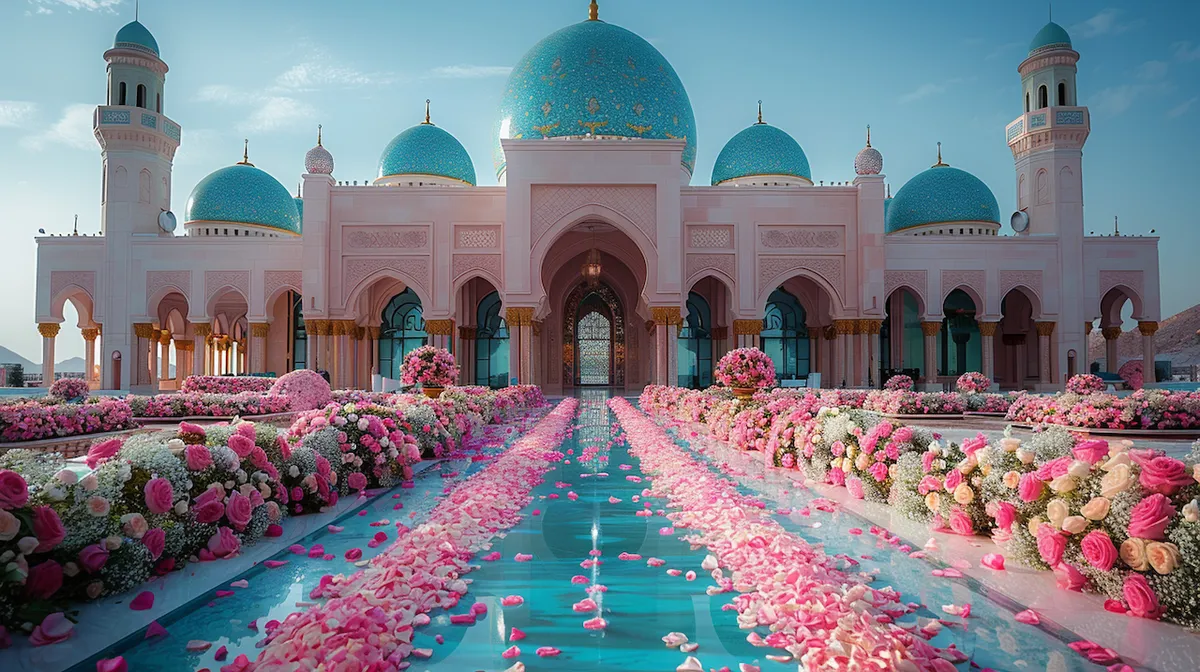
Understanding Marriage Laws in Saudi Arabia
Marriage laws vary across the globe, and Saudi Arabia is no exception. Understanding the intricacies of marriage laws in this country is crucial for anyone planning to tie the knot within its borders. Saudi Arabia, being an Islamic nation, follows Sharia law, which heavily influences its marriage laws.
In Saudi Arabia, marriage is considered a contract between a man and a woman with the purpose of creating a family. Islamic law dictates that marriage must be based on the free will and consent of both parties involved. However, the decision-making power often lies with the male guardian, known as the wali, who acts on behalf of the bride.
Additionally, certain requirements must be met before a marriage can take place. The individuals involved must meet the legal age of marriage, which is 18 for both males and females. The presence of witnesses during the marriage contract signing is also mandatory. Saudi Arabia does not recognize same-sex marriages, as homosexuality is not condoned under Islamic law, and it is important to note that polygamy is allowed in certain circumstances, with the husband required to provide equal treatment to all wives.
The intricate marriage laws in Saudi Arabia reflect the unique cultural and religious customs of the country. Individuals planning to get married in this nation should be well-informed about these laws and seek legal advice if necessary. By understanding and respecting the local customs, couples can ensure a smooth and legally sound marriage journey in Saudi Arabia.
The Role of Family in Saudi Arabian Marriages
Marriage is considered a significant event in any culture, and Saudi Arabia is no exception. In this conservative society, the role of family in Saudi Arabian marriages is deeply ingrained. From the initial matchmaking process to the ongoing support and guidance throughout the marriage, family plays a central role in ensuring the success and harmony of the union.
In Saudi Arabian culture, marriages are typically arranged by the families of the bride and groom. This tradition stems from the belief that parents have a greater understanding of what makes a suitable partner for their children. As a result, family members are actively involved in the matchmaking process, often consulting with each other and seeking recommendations from their wider social networks. This involvement ensures that the families have a level of compatibility, which is considered crucial for a successful marriage.
Furthermore, the role of family extends beyond the initial matchmaking phase. Once the couple is married, they benefit from the support and guidance of their families throughout their married life. Family members provide emotional support, advice, and help resolve any conflicts that may arise. The presence of extended family members, such as grandparents, aunts, and uncles, also adds to the sense of community and support for the couple.
In Saudi Arabian society, the family's role in marriage is not only limited to the couple themselves but also extends to the concept of preserving family honor and reputation. Marriage is seen as a way to strengthen family ties and maintain social status. Consequently, family members closely monitor the conduct and behavior of the couple, ensuring that they uphold societal norms and traditions. This sense of responsibility creates a system of accountability within the family, further reinforcing the importance of familial involvement in Saudi Arabian marriages.
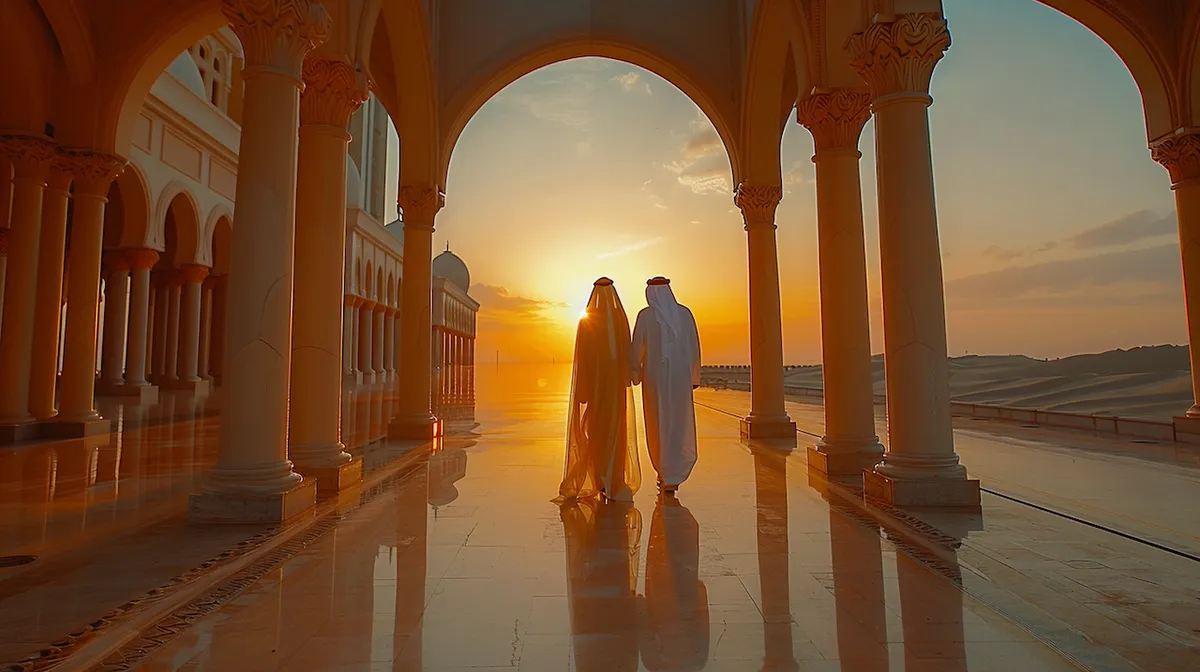
In conclusion, in Saudi Arabian marriages, family plays an integral role starting from the matchmaking process to providing ongoing support in the married life. The involvement of family members is deeply rooted in the culture and traditions of Saudi Arabia, ensuring the preservation of family ties and the perpetuation of societal values. While the dynamics of marriages are evolving with the influence of modernity, the significance of family in Saudi Arabian marriages remains steadfast.
Wedding Traditions and Rituals in Saudi Arabia
Wedding traditions and rituals vary greatly across different cultures and countries, and Saudi Arabia is no exception. In Saudi Arabian culture, marriage is considered an important ceremony that signifies the union not only of two individuals but also of their families. The customs and traditions surrounding Saudi Arabian weddings are deeply rooted in Islam and the country's rich history.
One of the most significant rituals in a Saudi Arabian wedding is the signing of the marriage contract, known as the "Katb Al-Kitab." This contract is usually signed by the bride's father or guardian and the groom, with witnesses present. It outlines the rights and responsibilities of the couple and is legally binding. The "Katb Al-Kitab" is followed by a wedding reception where family and friends come together to celebrate the union.
In Saudi Arabia, weddings are known for their extravagance and grandeur. The bride and groom often participate in a lavish traditional ceremony called the "Zaffa." This procession involves the couple, accompanied by family and friends, dancing and singing traditional songs. The bride makes her way to the wedding venue in a decorated car, while the groom rides on a horse or camel, symbolizing his readiness to take on the responsibilities of marriage.
Another important aspect of Saudi Arabian weddings is the traditional attire. The bride typically wears a stunning white dress called a "Thoub," embellished with intricate embroidery and embellishments. The groom, on the other hand, dresses in a traditional thobe and a head covering known as a "Ghutra."
While modern influences are undoubtedly shaping Saudi Arabian weddings, the country's rich cultural heritage and traditions continue to play a significant role. These wedding traditions not only celebrate the union of two individuals but also emphasize the importance of family and community in Saudi Arabian society. Weddings in Saudi Arabia are a true reflection of the country's deep-rooted traditions and provide a glimpse into the vibrant cultural fabric of the nation.
Navigating Interfaith Marriages in Saudi Arabia
Navigating Interfaith Marriages in Saudi Arabia can be a complex and challenging task. In this conservative Islamic country, where marriage is considered a sacred union, couples from different religious backgrounds face significant hurdles to legalizing their relationships. Under Saudi Arabian law, Muslim men are allowed to marry non-Muslim women, but the opposite is not true. This discrepancy creates a delicate balance for interfaith couples seeking to build a life together.
One of the biggest obstacles interfaith couples face in Saudi Arabia is obtaining official recognition for their marriage. The government requires that all marriages be conducted according to Islamic law and registered with the appropriate authorities. As a result, couples must often navigate bureaucratic processes to ensure their union is accepted and legally acknowledged. This can be particularly difficult for couples of different faiths, as they may face additional scrutiny and administrative hurdles.
Additionally, interfaith couples may encounter social and cultural challenges within Saudi Arabian society. Traditional norms and expectations prioritize homogeneity, placing significant pressure on individuals who marry outside their religion. These expectations stem from deeply ingrained cultural and religious beliefs that view interfaith marriages as a threat to social cohesion and stability. As a result, couples may face judgment, discrimination, or even rejection from their communities and extended families.
However, despite the numerous difficulties, some interfaith couples have managed to navigate these challenges successfully. Many have found support and guidance from religious and community leaders who are willing to help them navigate the complexities of their unique situation. Additionally, some individuals have chosen to live outside Saudi Arabia, where they have more freedom to marry according to their faiths. These couples often face a new set of challenges in adapting to different cultural norms and societal expectations.
Navigating interfaith marriages in Saudi Arabia requires determination, compromise, and a strong support network. It is vital for couples to educate themselves about the legal, religious, and cultural implications of their union. Building relationships with understanding and supportive individuals and organizations can help couples find the guidance and resources they need to navigate the complexities of interfaith marriage in Saudi Arabia. Ultimately, it is crucial for society to foster a more accepting and inclusive environment that respects individuals' choices and allows them to form loving relationships beyond religious boundaries.
Marriage Counseling and Support Services in Saudi Arabia
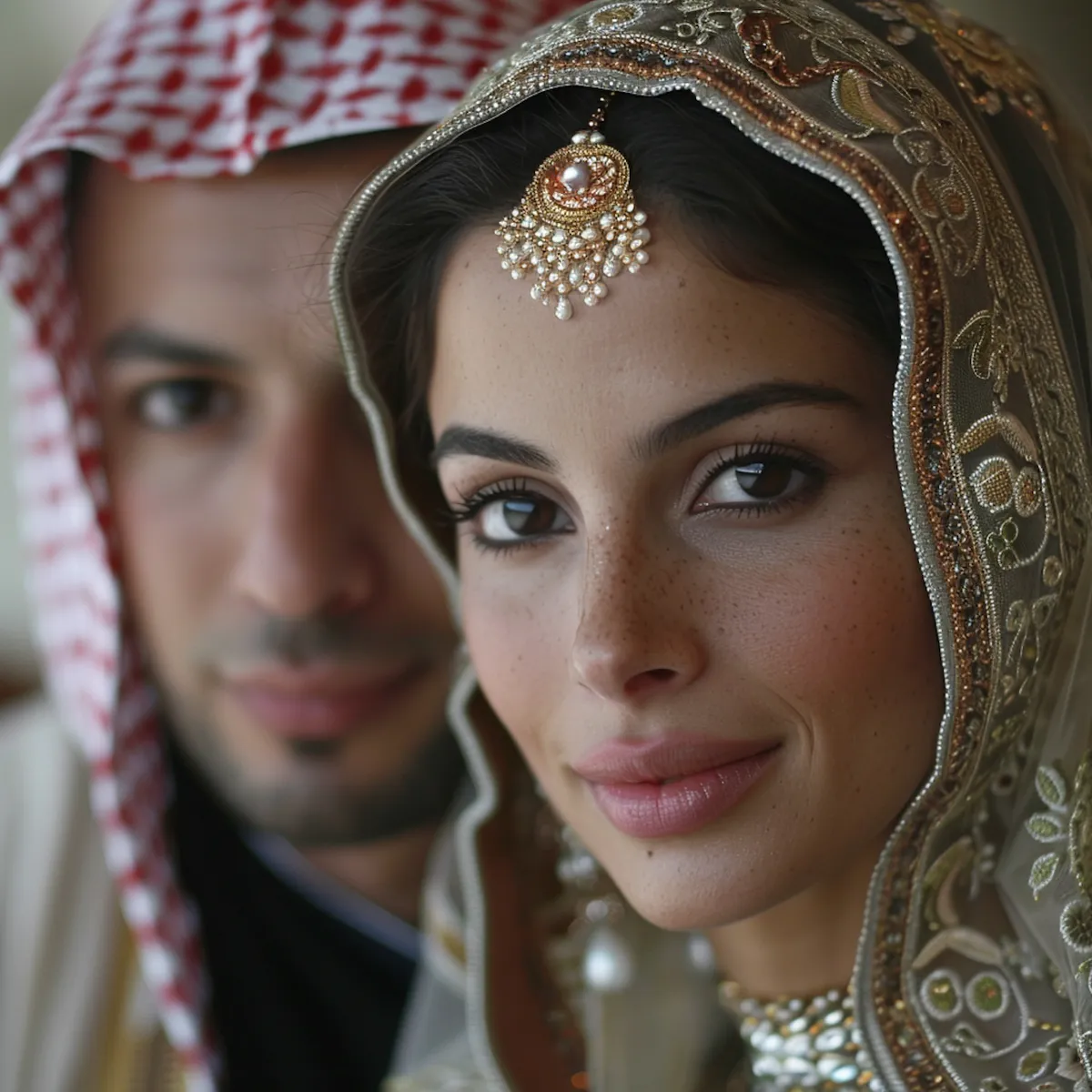
Saudi Arabia is a country known for its strong adherence to traditional values and cultural norms. In such a society, marriage plays a vital role, but it is not immune to the challenges faced by couples worldwide. This is where marriage counseling and support services in Saudi Arabia come into play.
Marriage counseling provides a safe space for couples to address their concerns, resolve conflicts, and enhance their communication skills. It also helps individuals understand themselves better and gain insight into their own behaviors and emotions. In Saudi Arabia, where the institution of marriage holds great importance, seeking professional help is becoming increasingly common.
Therapists and counselors specializing in marriage counseling provide guidance to couples through various techniques and approaches. They help them develop effective problem-solving strategies, improve intimacy and trust, and work towards strengthening their relationships. These services are offered both in person and online, catering to the diverse needs of couples across the country.
In a society where divorce rates are increasing, marriage counseling and support services in Saudi Arabia offer hope and assistance to couples in crisis. By providing a non-judgmental and confidential environment, these services aim to improve marital satisfaction, foster healthy relationships, and promote emotional well-being within marriages. Saudi Arabia is embracing the importance of mental health and the positive impact it can have on families and society as a whole.
Celebrating Anniversaries in Saudi Arabian Culture
In Saudi Arabian culture, celebrating anniversaries holds a significant place, particularly when it comes to marriage. Anniversaries are seen as an occasion to cherish the bond between spouses and uphold the sanctity of marriage. The celebration of anniversaries serves as a reminder of the commitment made by the couple and provides an opportunity for family and friends to come together and rejoice in love.
Saudi Arabia, being a conservative and traditional society, emphasizes the importance of family and marriage. Anniversaries are considered as milestones and achievements in a couple's journey together. The celebration is often marked by exchanging gifts, arranging lavish dinners, or organizing small gatherings at home. These celebrations serve as a way for couples to renew their vows and express their love and gratitude towards each other.
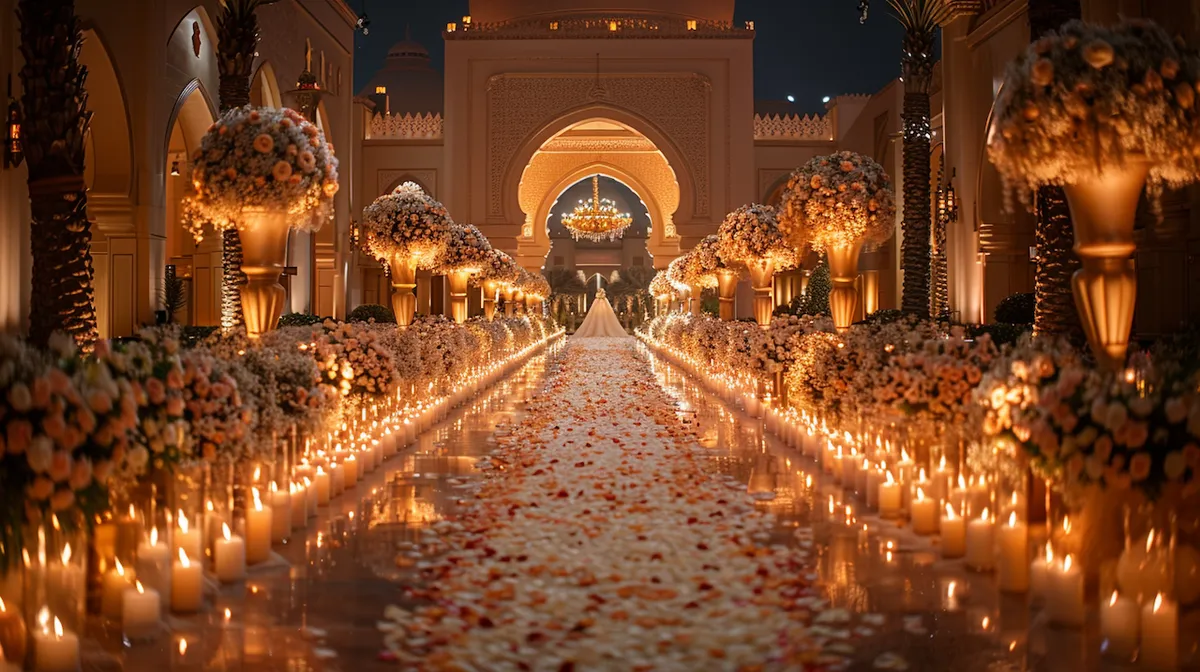
In addition to celebrations within the immediate family, broader extended family and close friends are often invited to join in the festivities. It is common to see couples sharing their joy with loved ones in order to strengthen their support network and reinforce the commitment to their marriage. Celebrating anniversaries in Saudi Arabian culture serves as a means to further foster the bond between families and reinforce the importance of love and togetherness.
Overall, the celebration of anniversaries in Saudi Arabian culture is a cherished tradition that represents the essence of love and commitment. It serves as a reminder of the sacredness of marriage and the bond shared between spouses. By coming together to celebrate, families and friends reinforce the importance of love, unity, and support in the journey of a married couple.
Modern Trends in Marriage and Relationships in Saudi Arabia
In recent years, Saudi Arabia has been experiencing a significant shift in the traditional norms surrounding marriage and relationships. As the country modernizes and embraces social and cultural changes, so too do its citizens' attitudes towards love, marriage, and family. One of the most notable trends in this transformation is the increase in delayed marriages.
Young Saudis, especially women, are now pursuing higher education and career opportunities, resulting in a delay in their marriages. This change is partly due to greater gender equality and the desire for personal growth and independence. It signifies a shift towards more egalitarian relationships, where individuals prioritize their own aspirations before settling down.
Another significant trend is the growing acceptance of non-traditional forms of relationships, such as love marriages, interfaith marriages, and even marriages between Saudis and foreigners. This cultural shift is facilitated by increased exposure to the outside world through travel, education, and social media platforms. These relationships challenge conventional norms but allow individuals to find love and happiness on their own terms.
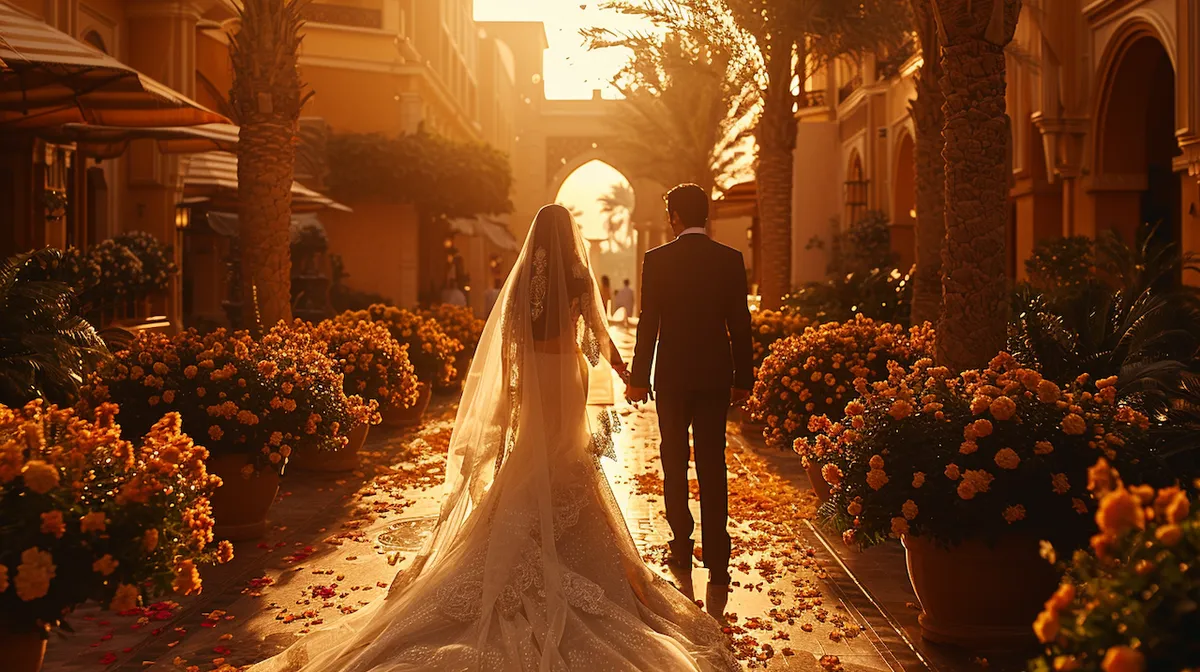
Furthermore, a trend emerging in Saudi Arabia is the rising divorce rate. While divorce was once considered taboo, the stigma associated with it is gradually diminishing. This change can be attributed to a growing awareness of individual rights and the recognition of the importance of personal fulfillment and happiness within a marriage. Divorce is now being seen as a viable option for couples who find themselves in unhealthy or unfulfilling relationships.
In conclusion, Saudi Arabia is witnessing significant shifts in marriage and relationships. The increasing number of delayed marriages, acceptance of non-traditional relationships, and growing divorce rates are all indicative of a society in transition. This transformation reflects the changing attitudes towards love, personal growth, and the pursuit of happiness in the modern era. As Saudi Arabia continues to evolve and embrace these changes, it effectively challenges long-standing cultural norms and allows individuals to forge meaningful relationships in their own unique ways.
Cultural Considerations for Marriage in Saudi Arabia
Marriage is a sacred institution in Saudi Arabia, deeply rooted in cultural traditions and values. In this conservative society, understanding the cultural considerations for marriage is crucial. Arranged marriages are still prevalent, and parents play a significant role in choosing a suitable partner for their children. Compatibility based on family background, social standing, and religious beliefs is given utmost importance.
In Saudi Arabia, gender segregation is strictly enforced, and this extends to marriage customs as well. Men and women have limited interaction before marriage, and even formal courtship is discouraged. Instead, families rely on intermediaries or matchmakers to facilitate the process. This emphasizes the collective nature of decision-making and ensures that marriages align with the values and expectations of both families.
Religion plays a central role in Saudi Arabian marriages. The majority of marriages occur between Muslims, and adherence to Islamic principles is highly valued. Compatibility in religious practices and dedication to the faith are considered essential for a successful marriage. Interfaith marriages are rare due to the potential challenges they may bring in terms of cultural integration and raising children with differing beliefs.
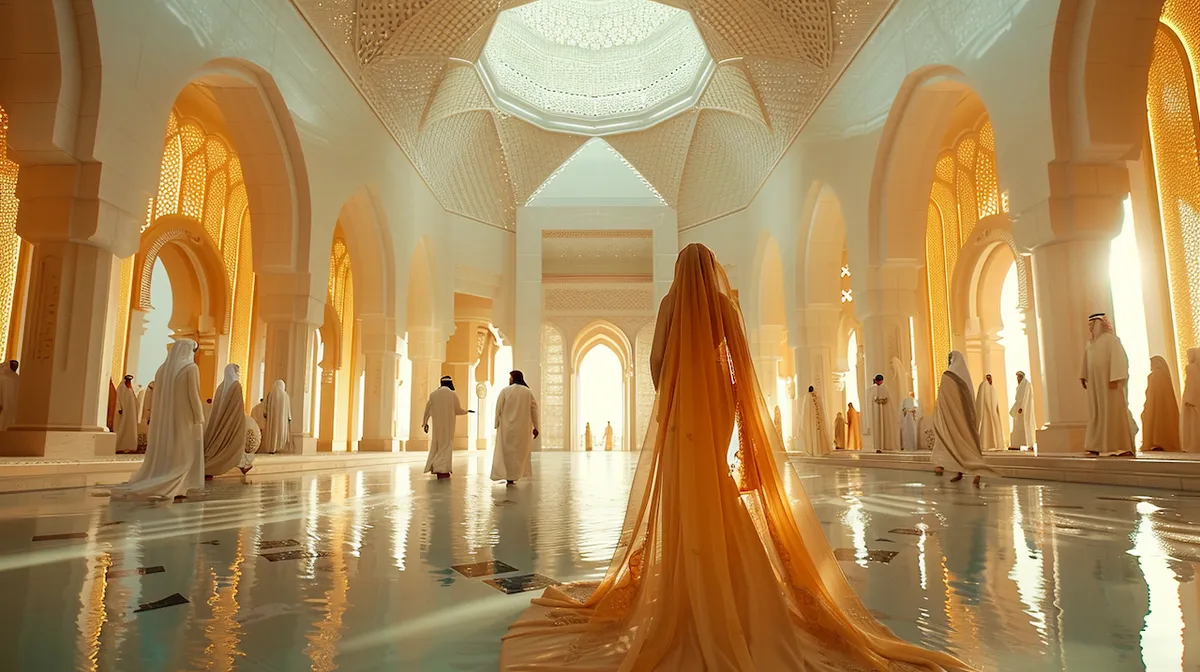
Saudi Arabian marriages are not solely a bond between two individuals but rather an alliance of families. It is crucial to understand and respect the cultural norms and traditions surrounding marriage in this country. From the importance of familial involvement to religious compatibility, these considerations shape the foundation of a successful union. By acknowledging and embracing these cultural nuances, individuals can navigate the complexities of marriage in Saudi Arabia with sensitivity and understanding.
Marriage Documents Needed in Saudi Arabia
Marriage is an important milestone in anyone's life, and it often requires certain documents to be legally recognized. This is no different in Saudi Arabia, where specific paperwork is needed for couples to tie the knot. If you're planning to get married in Saudi Arabia, it's essential to understand the necessary marriage documents.
First and foremost, couples need to provide a valid identification document, such as a passport or national identity card. This document verifies the individuals' identity and is crucial for legal purposes. Additionally, both parties must have a valid residency permit, known as an Iqama, in Saudi Arabia.
Furthermore, couples must obtain a documented proof of an eligibility certificate. This certificate confirms that the individuals are allowed to get married and have not previously been married to anyone else. It is issued by the relevant authorities and is a vital requirement for a legal marriage in Saudi Arabia.
Lastly, foreign nationals planning to marry Saudi citizens are required to provide additional documents, such as a no-objection certificate from their respective embassies or consulates. This document states that the individual has no objections to their partner marrying a Saudi citizen and is issued after thorough background checks.
In conclusion, anyone planning to get married in Saudi Arabia must ensure they have the necessary marriage documents. These include valid identification documents, residency permits, eligibility certificates, and additional documentation for foreign nationals. It's essential to familiarize yourself with these requirements and allow ample time to gather the necessary paperwork to ensure a smooth and legally recognized marriage in Saudi Arabia.
Marriage Ceremonies in Saudi Arabia
Marriage is considered sacred in Saudi Arabia, as it is widely believed to be the foundation of a strong and prosperous family. However, like any other culture, Saudi Arabian marriages face unique challenges that require careful consideration and innovative solutions.
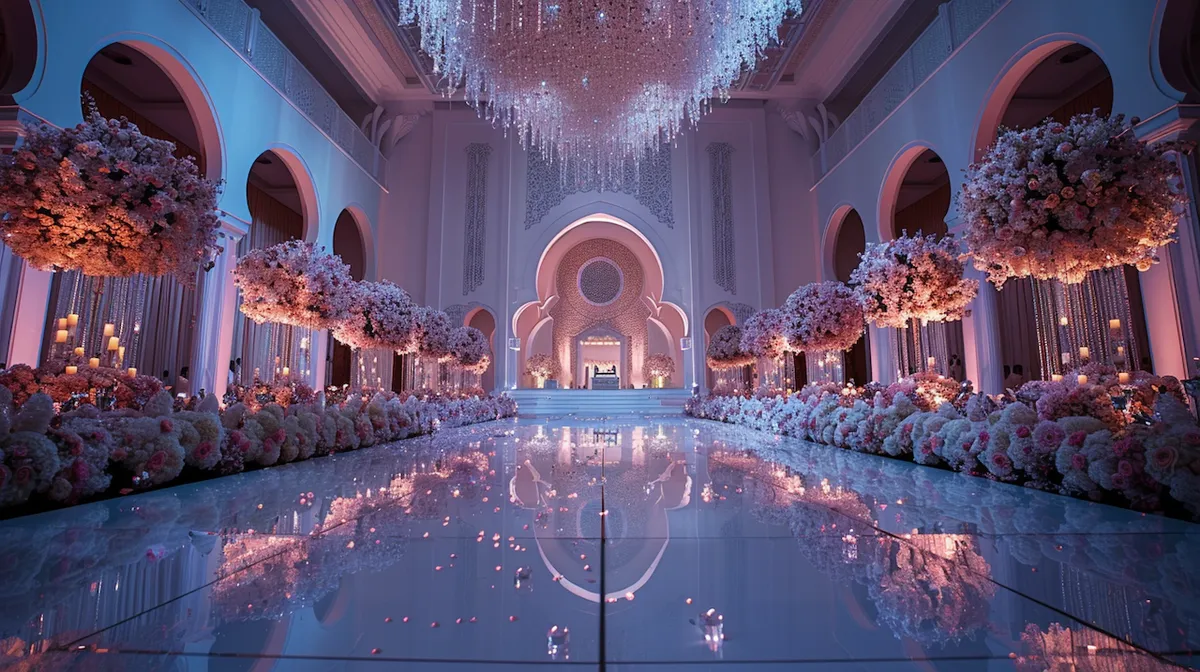
One of the foremost challenges in Saudi Arabia marriages is the issue of compatibility. Traditionally, marriages in the country are arranged by families, and often the prospective couples have little or no say in the matter. This can lead to compatibility issues, as individuals may be forced to marry someone they don't connect with on a deeper level. To address this, there is a growing trend of encouraging open discussions and consultations between the individuals involved in the marriage process to ensure compatibility and avoid potential problems.
Another challenge faced by Saudi Arabian marriages is the cultural and societal expectations placed on couples. Many couples struggle with societal pressure to conform to specific roles and norms assigned to men and women. This can create tensions and misunderstandings within the relationship. To overcome this, efforts are being made to promote gender equality and shift attitudes towards more progressive and inclusive perspectives on marriage, allowing couples to define their own roles and expectations.
Furthermore, divorce rates in Saudi Arabia have been on the rise in recent years, posing another significant challenge. Cultural taboos surrounding divorce and the stigma associated with it can deter couples from seeking help when they encounter issues in their marriage. To address this, counseling and support services are being made more accessible, with an emphasis on educating couples about communication and conflict resolution skills to help them navigate challenges and prevent the breakdown of their marriage.
In conclusion, Saudi Arabia marriages face various challenges that require innovative solutions. By promoting compatibility through open discussions, embracing progressive attitudes towards gender roles, and providing support and resources for couples, it is possible to mitigate these challenges and strengthen marriages in the country. Ultimately, creating a supportive and empowering environment for couples can lead to happier and more fulfilling relationships.Marriage is one of the most significant milestones in an individual's life, and in Saudi Arabia, it holds particular importance. However, like any other country, Saudi Arabia encounters various challenges when it comes to marriages. From cultural traditions to societal expectations, couples encounter hurdles that require innovative solutions.
One of the primary challenges faced in Saudi Arabia marriages is the preconceived notions of gender roles. Traditionally, men are expected to be the breadwinners and decision-makers, while women are expected to prioritize household responsibilities and child-rearing. While this mindset persists in some areas, there is a growing awareness of the need for gender equality and the rights of women. Empowering women through education and employment opportunities plays a vital role in overcoming this challenge.
Another challenge is the mismatch of expectations between couples due to the pressure from extended families. Family involvement in decision-making, particularly in choosing a suitable partner, is deeply ingrained in Saudi Arabian culture. However, this can sometimes lead to conflicts and unrealistic expectations. Bridging the gap in expectations can be achieved through open communication and understanding between couples. Moreover, pre-marital counseling and support groups can play a pivotal role in ensuring healthy communication and managing the influence of extended families.
Furthermore, one of the significant challenges faced is the rise in divorce rates. This can be attributed to a variety of factors, including compatibility issues, financial constraints, and societal pressures. Addressing this challenge requires a multi-faceted approach, including marital counseling services, legal reforms, and promoting awareness about the importance of effective communication and conflict resolution in relationships.
In conclusion, Saudi Arabia, like any other country, faces unique challenges within the institution of marriage. However, progressive solutions exist to overcome these challenges. Embracing gender equality, promoting open communication, and providing the necessary support and counseling services would undoubtedly contribute towards building stronger and healthier marriages in Saudi Arabia.
Challenges and Solutions in Saudi Arabia Marriages
Marriage is considered a vital institution in Saudi Arabia, deeply rooted in the culture and traditions of the society. However, like in any other country, marriages in Saudi Arabia also face their fair share of challenges. One of the significant challenges is the pressure of family and societal expectations on individuals to get married at certain ages. Young men and women often find themselves struggling to find the perfect partner under such expectations, leading to increased stress and anxiety.
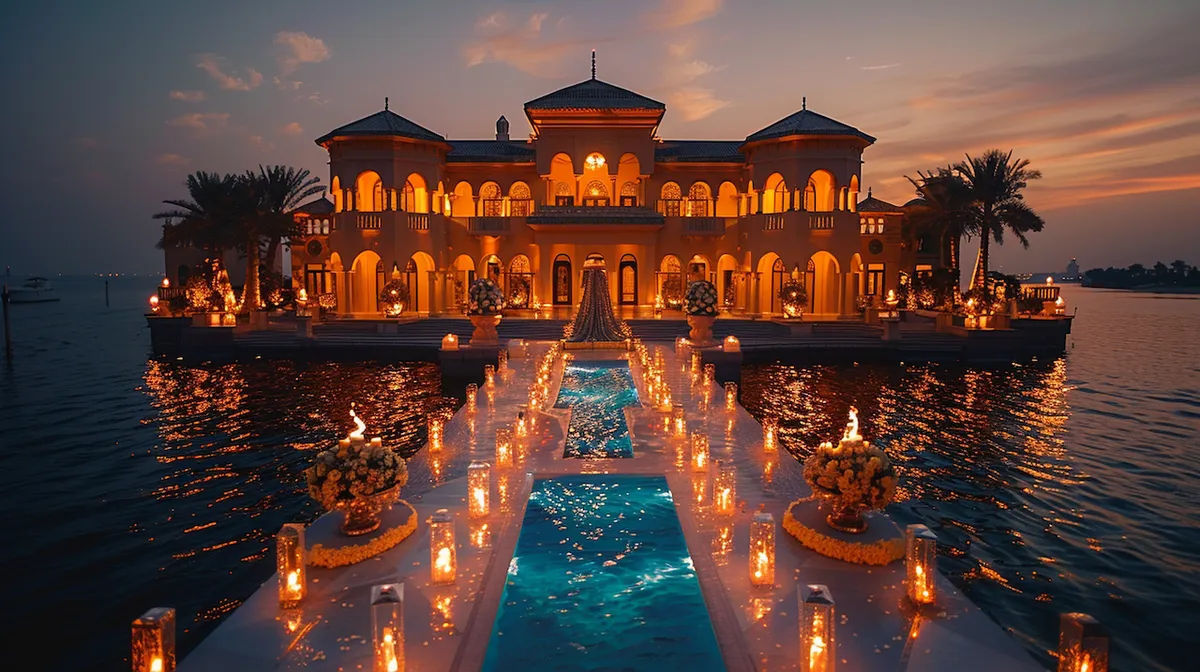
Another challenge faced by many Saudi Arabian couples is the issue of compatibility. Arranged marriages are still prevalent in the country, and although they are seen as a way of maintaining family and societal harmony, they can sometimes result in couples who are not well-suited for each other. This lack of compatibility can lead to strained relationships and even divorce in some cases.
Despite these challenges, there are also solutions being implemented to address the issues in Saudi Arabia marriages. The rising influence of social media and dating apps has opened up new avenues for individuals to meet potential partners beyond their immediate social circles. This has provided more choice and freedom in the selection process, allowing couples to find someone with whom they share common values and interests.
Furthermore, counseling services and pre-marital education programs are being introduced in Saudi Arabia to help couples navigate the challenges they may face in their married life. These programs aim to provide couples with the necessary skills and knowledge to establish a strong foundation for a successful marriage. By addressing issues such as communication, conflict resolution, and cultural differences, these initiatives emphasize the importance of understanding and compromise in maintaining a healthy relationship. Additionally, navigating interfaith marriage can present unique challenges that require special attention and support.

In conclusion, while Saudi Arabia marriages may face challenges, such as societal expectations and compatibility issues, there are solutions being put in place to alleviate these concerns. By embracing modern methods of finding a partner and providing support through counseling and education, Saudi Arabian couples can strive towards building stronger and more fulfilling marriages. Ultimately, the key lies in open communication, mutual understanding, and a willingness to adapt to the changing dynamics of modern-day relationships.
Tips for a Successful Marriage in Saudi Arabia
Marriage is a sacred institution, and in Saudi Arabia, it holds great significance. With its unique cultural practices and traditions, maintaining a successful marriage in Saudi Arabia requires understanding and adaptation. As couples navigate their journey, they may also want to keep an eye on the latest wedding gown trends. Here are some tips to ensure a strong and harmonious relationship in this beautiful country.
Communication is crucial in any marriage, but even more so in Saudi Arabia. The conservative nature of the society often means that couples may face cultural and gender-related challenges. It is important to establish open and honest communication with your spouse, allowing both partners to express their thoughts, concerns, and desires. This will foster understanding and create a strong foundation for resolving any issues that may arise.
Respecting each other's traditions and cultural values is vital in a Saudi Arabian marriage. Cultural differences can sometimes lead to misunderstandings, but embracing and appreciating these differences can strengthen the bond between spouses. By learning about and participating in each other's traditions, you show respect and commitment to your partner's heritage, fostering a sense of unity and shared interests.
In Saudi Arabia, family plays a central role in marital life. Maintaining a good relationship with your in-laws is essential. Show respect and kindness to your spouse's family, as they hold immense importance in their lives. Spending time with them, engaging in conversations, and participating in family activities will help build strong bonds that will have a positive impact on your marriage.
Lastly, seeking guidance and support from the community can be immensely beneficial. In Saudi Arabia, there are various religious and cultural support groups that provide counseling and advice for couples. Utilize these resources to gain valuable insights into navigating the intricacies of a successful marriage in this unique context.
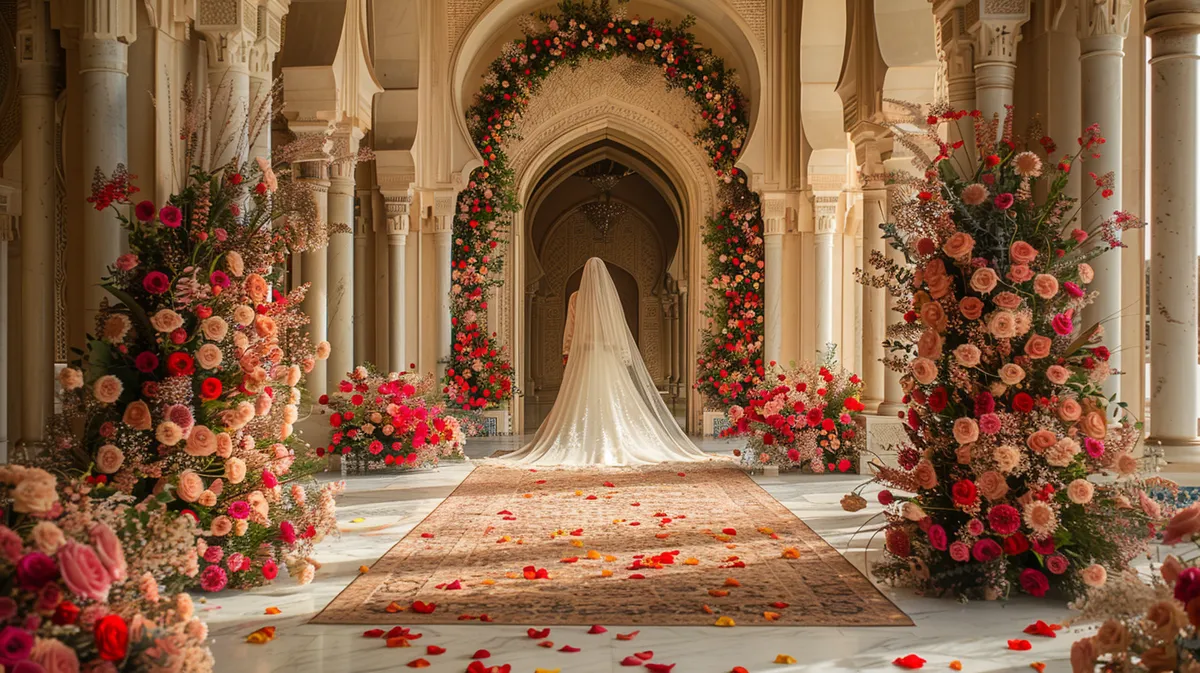
In conclusion, a successful marriage in Saudi Arabia requires communication, respect, and a willingness to adapt to cultural differences. By fostering open communication, embracing each other's traditions, maintaining good relations with the extended family, and seeking support from the community, couples can build a strong and fulfilling relationship that withstands the test of time. Remember, marriage is a journey, and with love, understanding, and commitment, it can be a beautiful and rewarding one in Saudi Arabia.
Divorce Procedures in Saudi Arabia
Divorce is a sensitive and complex issue across the globe, and Saudi Arabia is no exception. In Saudi Arabia, marriage is considered a sacred bond, but sometimes circumstances lead to the dissolution of this union. Unlike some countries, divorce procedures in Saudi Arabia are governed by Islamic law, specifically the Qur’an and the teachings of Prophet Muhammad.
There are two main types of divorce in Saudi Arabia: talaq and tafriq. Talaq is a unilateral divorce initiated by the husband, while tafriq is a judicial divorce granted by a court. Talaq can be exercised either verbally or through a written declaration, while tafriq requires a legal process, involving a court hearing and a judgment.

In Saudi Arabia, divorce procedures prioritize the welfare of both parties and aim to ensure a fair and just settlement. The divorced wife is entitled to certain rights, including the mahr (dowry) and financial support during the waiting period known as iddah. Custody of children is determined by the court, taking into consideration the best interests of the child, as well as the financial and emotional capabilities of both parents.
While divorce can be a distressing experience, it is important to note that Saudi Arabia has been taking steps to improve divorce procedures and protect the rights of women. Recent reforms have made it easier for women to initiate divorce, granting them more freedom and autonomy. However, it is still crucial for couples to approach divorce with caution and seek legal counsel to ensure they are aware of their rights and responsibilities.
Divorce procedures in Saudi Arabia may differ in some aspects from those in other countries, but they ultimately aim to provide a fair and just resolution for both parties involved. It is essential for anyone going through a divorce in Saudi Arabia to seek legal assistance and approach the process with patience and understanding. By adhering to the principles of Islamic law, divorce procedures in Saudi Arabia strive to uphold the sanctity of marriage while also safeguarding the rights and well-being of all individuals involved.
RelatedRelated articles



